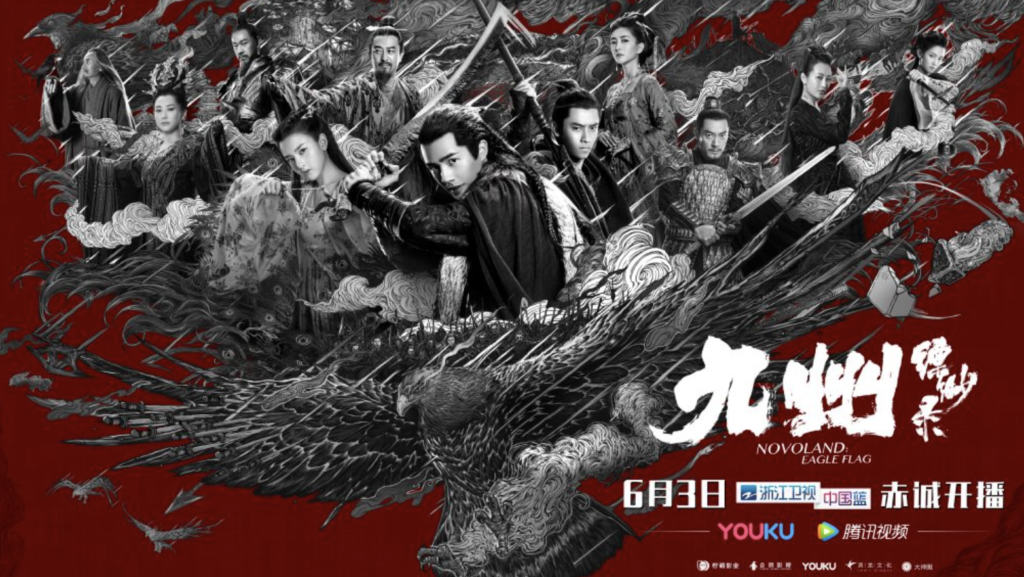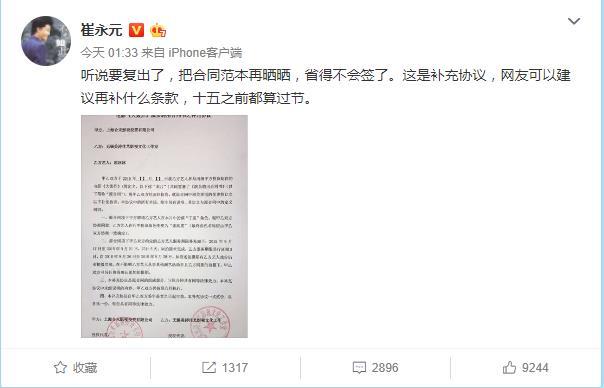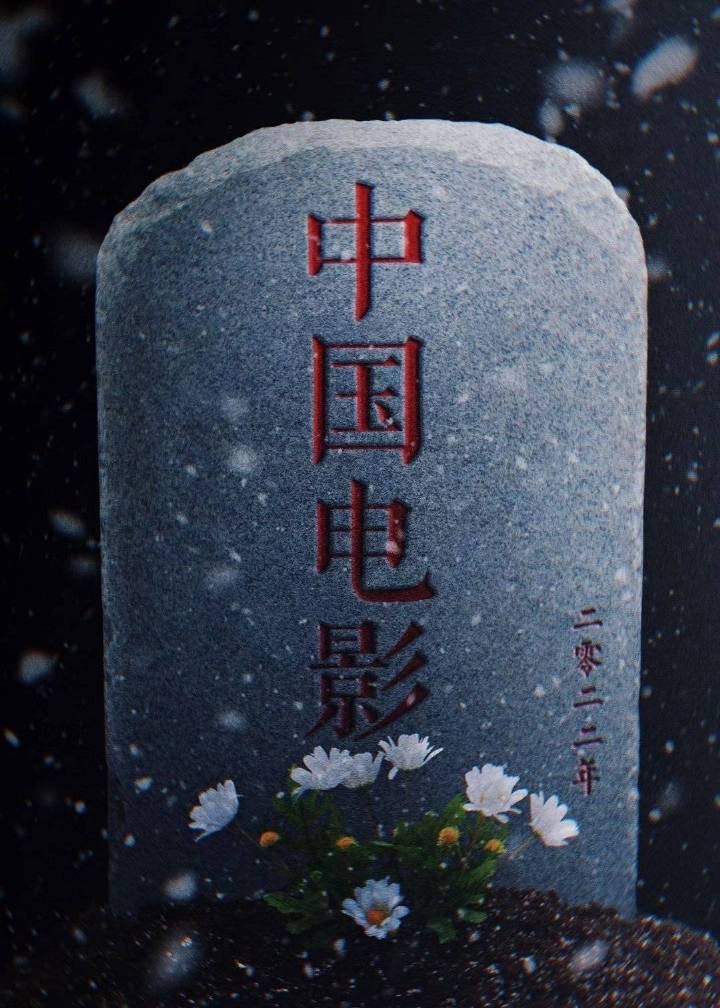On November 10, the 35th Golden Rooster Awards (金鸡奖) was held in Xiamen, a beautiful coastal city in southern China. The opening ceremony was star-studded with half the Chinese film industry gathered. Zhou Dongyu and Du Jiang, two of the most famous Chinese actors in the post 80s/90s generation, made the opening remarks, saying: “this is the best era for Chinese filmmakers. China is a blessed land (福地) for us in the film industry.”

The glinting ceremony filled by polished speeches.
Three days before the grand ceremony, on November 7th, Jia Zhangke (贾樟柯), the famous Chinese director and screenwriter, who is often regarded as the leading figure of the "Sixth Generation" movement of Chinese cinema, held a panel with Philippine director Rafael Manuel in Beijing. Jia said:
"In recent years, I feel more and more that I have become just a resident of Beijing's Chaoyang district. I can't go abroad. I can see the films of my peers but I don't know what they think, especially the young generation. I think as a person and as a country, we should always have a way to communicate with the world; a way to engage with the world. "

The director who's been forced into a language artist.
As a “sensitive figure” who has a number of projects that are still awaiting censorship approval, Jia was clearly being very cautious with his words. But some people with less baggage (and perhaps more pain) have chosen not to. On Nov 12th, a 10-second video clip went viral on Weibo, titled “Cinemas can no longer survive”, it documented a Chinese cinema-chain owner cutting up the entire screen in his cinema. “Here I am again, destroying another one,” the guy bitterly self-mocked, “It felt great to have it built. Even better to destroy it down. Haha! Cinemas are dead!”

The desperate cinema owner.
Statistics do not lie. Hidden behind the triumphant box office figures of mainstream patriotic blockbusters (主旋律) films is the true status of the Chinese film industry: the 2022Q1 Chinese Film Market Report by ENData shows that the box office in the first three months of 2022 was way below that in the corresponding period in 2021. The box office accruals in March even dropped to the same level as in 2013. More recently, the Last National Holiday week (the first week of October) was supposed to be a booster shot in the arm of annual box office revenue, yet the box office accrued only 1.5 billion RMB, 65.8% less than the previous year, making it the lowest box office record since 2015. Covid, the economic downfall, and the tight grip of censorship, the trio have set the industry back almost a decade.
The two of us at Elephant Room are both film lovers. Recently we have been incredibly depressed by the Chinese cinemas that have no more films. To find out what's really been going on, we went out to talk to four friends who are all professionals in China’s film-making industry.
Here are their stories.
Wang, independent director and scriptwriter, age 35
“The Last time I went to the cinema was during the Spring Festival.”
Run (润)? of course I’ve thought about it. In fact I just had a long conversation about it with a reputable director last night. As much as running (润) sounds attractive, I don’t think it is an option for me now. I personally don’t think I could adapt well abroad.
But staying here is truly a pain in the neck too. My film, which has been in the works since 2017, is finally proceeding to the shooting stage next month. At this point, frankly, I still don’t know if we can really make it. We’ve been on hiatus forever this year like everyone in our industry, hunting for “safe places” to shoot. As long as a province has one confirmed Covid case, the local government would immediately withdraw permission for film crews to stay. We’ve finally landed a set location in Anhui province last week in hopes of starting shooting next month. God bless us.
This is my first feature length film. Covid aside, I’ve also been mentally exhausted by the investors. Two years ago, we secured investment from a company in the web3 business. At first they acted like the coal bosses (煤老板) of the previous decade of the Chinese film industry: they didn’t care much, just poured in the money because they thought an independent film investment sounds cool. Awesome. But last year, just as we were about to head to Dongbei, our original set location to shoot, they pulled out of the investment because the company went bankrupt.
So my producer and I went searching for financing for almost a year. In an economically down period like this, we were extremely lucky to find someone who was willing to give us about a million RMB in funding - with strings attached. The investor wants us to use A-list actors and actresses who he believes are the only way to bring a return in the box office. As this is our only source of funding, I have no choice but to fulfill his demands. I have been in the tortuous process of finding and negotiating these actors recently. Although the market is cold, the majority of these well-known stars still prefer to wait rather than take a pay cut for a small-budget film like ours. I am handicapped by both sides really.
The director I was talking to last night summarized that from now on there would only be three genres of films in Chinese cinemas: mainstream patriotic films, family-friendly comedies and “positive energy” realist films that sing praises of the current way of life at least in some ways. I guess the third option would be the only space for independent filmmakers like me. I could never shoot mainstream patriotic films; how can you shoot something you don’t believe in?
Out of 16 of my classmates in our undergraduate Film Directing major, only 3 of them, including me, are still in the film industry. We are all virtually depressed, either already clinically diagnosed or at the brink of it. There’s so much resistance that even just pushing a tiny step forward for our productions is difficult. We see no hope. No light.
Perhaps eventually I will run (润) like some my filmmaker friends did. Perhaps I will just sink with the boat here. I don’t know. I am battling myself everyday.
Zhao, actor, age 31
“I only went to the cinema once this year.”
Being an actor has been a dream of mine since adolescence. I majored in Acting in both my bachelor’s degree and in my master's degree in the US. Once I graduated, I decided to come back to China because of the domestic industry’s seemingly prosperous future at the time.
From 2017 until now, I’ve shot a total of 8 movies and TV dramas. Unfortunately only 4 of them have been publicly screened. The rest were stuck in post-productions either because of difficult finance or censorship. A TV drama I shot in 2018 is still waiting for a broadcasting license because it is an adaptation of a Korean original.
Looking back at my career, I probably entered the industry at its peak. My first acting job back in mainland China was a colossal TV drama that reported 500 million RMB in investment. The production crew was as large as 1400 people at the busiest, comparable to a blockbuster movie production. It was reportedly the last Chinese drama produced at this cost before the industry went down hill.

Novoland: Eagle Flag, the heavily invested TV production that casted Zhao.
In 2019, the National Radio and Television Administration issued a regulation that all costume dramas should be taken off air. The regulation impacted a wide range of productions that involved imperial palaces, power struggles and fantasy themes. A lot of production companies and investors were worn down by the process of waiting for their shows to pass the censorship.
Then Covid hit, my acting career hit a freeze. Actors are possibly in one of the most passive positions in the industry. We are always waiting in hope to be selected. In the desperate times during Covid, a lot of actors, including me, have either started second careers to support ourselves or taken cheap gigs that were impossible to imagine just one year ago. To give an example: I’ve been offered a role this summer with a 10,000 RMB salary for three entire months of shooting. Even background actors earn more than that right?
Frankly, I cannot see a silver lining to the present industry. The 20th National People’s Congress emphasized cultural confidence again yet the understanding of it is so limited. Content creators in Korea and Taiwan have earned themselves global influence today because they have been able to focus on modern, touching and universal stories that resonate with humanity. Meanwhile, when we talk about cultural confidence in the Chinese context, all we can do is tell the same story revolving around either great classical novels or patriotic heroes. At the end of the day, I can reconcile with having to make patriotic-themed content, but what I cannot accept is executing it with boring cliches.
Waiting is the norm now. I will wait until I cannot wait anymore.
Cheng, executive film producer, age 33
“I haven’t been to a cinema since 2020.”
Today is the second to the last day of the project I’m currently shooting. It’s been 41 days, 16 of which we stayed in lock-down because there was one confirmed Covid case in town. For those 16 days, our entire crew stayed in our hotel rooms, eating shitty meals provided by a local restaurant, doing nothing but taking nucleic acid tests daily. We have been lucky that this film features content about rural revitalisation (乡村振兴), hence we have some funding from the local government. Otherwise I can’t imagine any production crew would have enough finance to survive a couple of weeks of lock down.
Recalling the past couple of years, I shot one commercial, a couple of micro-short dramas (微短剧) and one documentary. In 2022, I’ve only worked two months. Nowadays, I tell people that I’m three years younger than my real age - come on, the past three years of Covid doesn’t count right? I pretty much slept through it.
As a veteran, I entered the entertainment industry in 2015 after retiring from the army. My childhood friend invited me to help out in his crew, and I enjoyed the busy, warming atmosphere so we formed a company together to take the business seriously. At first we only did independent films, it was a hard period but I got to know a lot of interesting, talented people. Gradually we started undertaking commercial advertisements and Internet Films (网大) too. I took some time off when I got married in 2019, and then Covid hit when I came back.
Everything changed.
Looking back, I think the industry reached its highest peak in 2018, and it’s been downhill ever since. There was still a lot of hot money on the market that year. Investors would pour in millions, even billions of RMB for a film. Nobody cared about the quality of the content, instead, the only important question was who would be starring in the productions, as they guaranteed box office returns. As a result, the earnings of stars got ridiculously high, taking up as much as 70% of the production fee. The majority of the films turned out to be rubbish, so you can’t help but wonder if these investments were a way of laundering money.
Then the punch came. Ever since actress Fan Bingbing's over 800 million RMB fine for tax evasion, people involved in this industry have been under tightened scrutiny. A series of productions were barred from public screening because the starring celebrities were labeled as tainted stars. The spinning wheel stopped, and those whose sole-purpose was to earn some quick money are being forced out of the game.


In 2018, Cui Yongyuan, the former Chinese television personality, played the whistleblower by leaking two contradicting film contracts for Fan Bingbing, accusing her of using what are considered yin-yang contracts to conduct tax evasion. The case is considered a turning point of China's entertainment industry.
Of course money isn’t the only problem. The Chinese market has a habit of valuing a film by its box office figure. Also, in order to pay back the investors, I have witnessed countless cases where directors have to compromise their story in order to get the film to pass censorship. Now, all the independent film directors I know are totally disappointed with the industry. I can’t see any sign of hope in their eyes. They have either given up the career entirely or chosen to distribute their films abroad.
As with everyone else, I guilt of spending too much time on Douyin’s short videos. But I think the hype will eventually fade once we successfully handle Covid. People need to return to society and have real interactions right? So once the economy recovers, I believe the industry will gradually come back in two to three years. And as for censorship - I don’t think that’s a big deal. There has always been censorship for films anyway, it’s not a recent thing. If you choose to live in China, you deal with it. Period.
Li Tao, Creative Producer at the Beijing branch of an international Motion Picture Company, age 29
“As a producer I consider going to the cinema a duty. This year I went a few times but none of the productions left any exceptional impression.”
I made the decision to request relocation back to China at the end of 2020. Los Angeles, the city where my company’s headquarters was located and where I lived, was in a disastrous chaos back then. We had been working from home for ages under anxiety, meanwhile the anti-Covid campaign in China seemed to be conducted very well, with everything under control. “Maybe it’s time to move back.” I thought to myself.
It is still too early to say whether coming back was a good or bad decision, but my experience with the Chinese film market the past two years was definitely not what I expected. As a creative producer, my job is to incubate new scripts and assist with our company’s Chinese productions. Last year, we produced a comedy film set in a psychiatric hospital. The film has now been stuck with CFA (China Film Administration) for over half a year. Till this day, we still have no clue when will we receive a “dragon sign” (龙标/电影公映许可证, The Film Public Screening Permit).
China’s film censorship process is truly a machine of slow torture especially with the co-censorship system, which means films have to be reviewed by “all relevant administrations” for approval. Our film, for instance, touches on public health issues, so it had to be reviewed by the National Health Commission first then by the CFA. Those bureaucrats in the Health Commission only care if the image that film portrays about the Chinese medical system is positive, but what is positive? That’s totally up to their judgment, which could change any minute.
Over the past several months, we received four or five versions of verbal feedback from the NHC and made changes to our film according to their comments. Although we’ve received their approval, we are now stuck with CFA instead. From what I know, hundreds of films are in the same situation as ours: applications laying on the desks of CFA’s office waiting for approving red-stamp document (红头文件) to be issued. All we can do is wait.
Even if we managed to get the dragon sign after a hearing by CFA, it is still just the first step. After the film completes post-production, we have to go through “technical review” in order to get the Public Release License. At this stage, the CFA could still issue all sorts of censorship comments unrelated to technical issues. Whoever is in charge there is so powerful that they can basically put a stop to any film at any time. Do you remember Born to Fly? It was the No.1 pre-sale box office for the National Holiday Week, yet three days before the scheduled release day, its debut was shelved. Rumor is that the “top” was unhappy with its portrayal of the CPLA. It had gone through the entire censorship process, poured in all that money for promotion, yet was canceled in a blink.

The official announcement for cancelling Born to Fly's box office debut.
I think the Chinese film industry has fallen into a vicious cycle. Without films, cinemas are shutting down, making people fall out of the habit of watching films on big screens. With fewer audiences there are less projects being initiated and less capital flowing into the industry. Soon everything may grind to a halt. In fact it is already frozen. The industry is so chilly now our bones could crack anytime.
Recently my girlfriend and I have been enjoying a guilty pleasure: we’d go to this underground bar that secretly plays movies in the evenings. The bar-owner takes out his projector and other people like us buy some drinks and get ourselves cozy in little stools in front of the screen. Together we watch old Chinese films or western Classics - whatever the owner feels like playing that night. I am fully aware that it is wrong of me, a professional producer, to watch pirated films this way. But with so much breathless depression looming in life, this is like a secret escape that keeps me feeling alive. It is my last resort for spiritual relief.


Some of the memes made by Chinese netizens to mourn the domestic film industry.
RIP. Chinese Cinemas.

The Beatles – легендарная британская рок-группа, сформированная в 1960 году в Ливерпуле. Их музыка стала символом эпохи и оказала огромное влияние на мировую культуру. Среди их лучших песен: “Hey Jude”, “Let It Be”, “Yesterday”, “Come Together”, “Here Comes the Sun”, “A Day in the Life”, “Something”, “Eleanor Rigby” и многие другие. Их творчество отличается мелодичностью, глубиной текстов и экспериментами в звуке, что сделало их одной из самых влиятельных групп в истории музыки. Музыка 2024 года слушать онлайн и скачать бесплатно mp3.